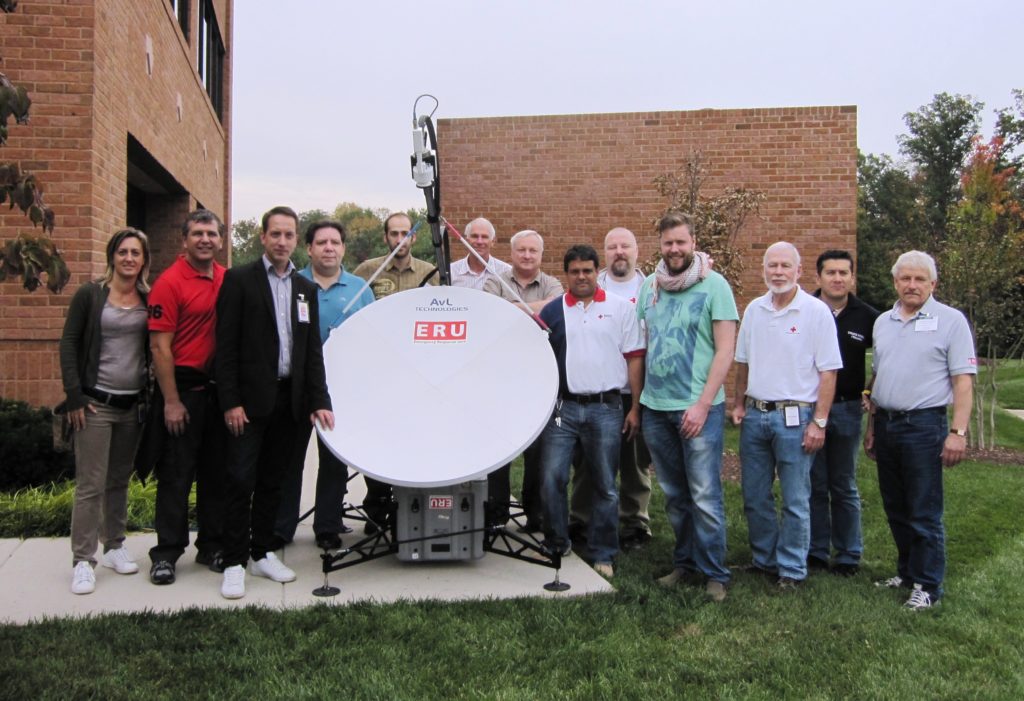Editor’s note: Jana Sweeny is a long time Red Crosser who recently joined the National Headquarters team as the Director of International Commmunications. This is her first blog post. Welcome, Jana!
Earlier today the American Red Cross, along with members of Red Cross societies from Canada, Denmark, Finland, Italy, New Zealand, Spain, the International Federation, and the ICRC demonstrated our new portable VSAT, a two way satellite ground station. I have to admit, not being a techie I wasn’t that excited when our team told me about it and asked me to write something for the blog. However, last night, after sitting down with one of our volunteers my eyes were opened. While this technology isn’t brand new, it is new to the field of international disaster response.
The American Red Cross is one of five Red Cross societies that hosts an IT/Telecommunications Emergency Relief Unit (ERUs), which consists of people and equipment that can be deployed worldwide in 24-48 hours during a disaster to help reestablish communications. We are currently the only Red Cross society with an ERU that has a VSAT. This portable system can be broken down into five cases that can easily be shipped on an airplane, carried by the two person team and loaded into vehicles that can get into some of the hardest to reach places in the world. It has been developed to provide worldwide coverage in areas where satellite coverage is often spotty. It allows for multiple phones, broadband, fax, and TV connections to be quickly established to support Red Cross response operations.
For those of you who are conversant in technology, please forgive my layman’s way of describing this, but let me tell you why this is important to me. I am a member of our Relief ERU. The initial days of a disaster are chaotic, information is spotty and needs of those affected are great. This technology and the amazing volunteers who deploy with it will allow the Global Red Cross and Red Crescent Network to communicate and share information quickly helping us make better, quicker and more efficient planning decisions to bring relief to the people affected by disaster.
Glen Bradley, an American Red Cross volunteer actively involved in the implementation of the technology and a member of our IT/Telecommunications ERU summed it up by saying, “We now have the technology to meet the capacity required by today’s disasters in a robust, scalable and economic platform that will allow communication from the most devastated and isolated places on earth.”

